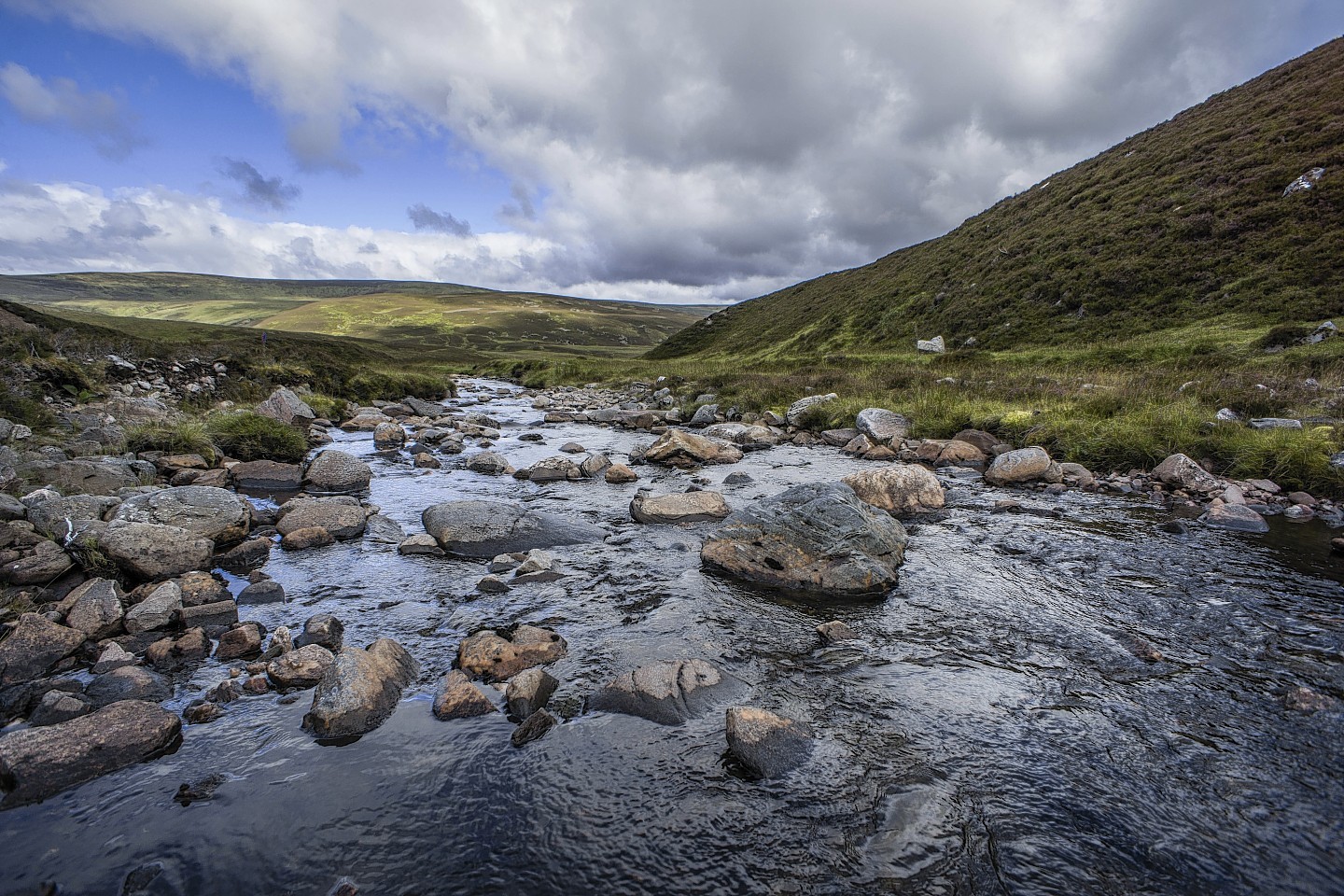One of the most celebrated landscapes in the Highlands is on the verge of being “completely strangled” by a 30-mile chain of wind turbines, say campaigners.
Furious climbers claim plans for two windfarms threaten to overwhelm the unspoilt beauty of the Monadhliath Mountains, leaving nowhere more than a few miles from one of the structures and wrecking the local tourism economy.
And the Mountaineering Council of Scotland (MCoS) is urging the Scottish Government to seize its last chance to preserve the area by ditching proposals for the Allt Duine application, which would be sited just a few hundred yards from the Cairngorms National Park boundary.
The scheme, which would be sited just a few hundred yards from the Cairngorms National Park boundary, would comprise 31 towers, standing 410ft high, on land at the Dunachton, Alvie and Dalraddy estates, near Kincraig, as well as many miles of access tracks.
The Scottish Government said it would be inappropriate to comment on the project while it is still under consideration, but insisted ministers took into account issues such as the impact on the landscape and the presence of other windfarms nearby before reaching any decisions.
Members of the MCoS say Allt Duine – combined with a new application lodged by Coriolis Energy for 13 turbines at the Dell windfarm at Whitebridge – would complete a line of turbines stretching for 30 miles north from the Corrieyairack Pass with no one more than three miles from one of the structures.
Chief officer of the group, David Gibson, said the area of the Monadhliath had been “sacrificed to the profits of big power companies, windfarm developers and major landowners”.
He added: “The extent of the damage will become clear over the next few years as the massed ranks of turbines which have been given the go ahead are built and overwhelm the wild lands which have been valued for so long for their remoteness, wildlife and beauty.
“The local economies in these areas depend heavily on those who go there to walk, climb or relax in open countryside, but this is all at risk as visitors will go elsewhere.”
Mr Gibson said there was still time for a re-think on the Allt Duine application, on the eastern side of the range.
He said: “There is one final chance for Scottish Government Ministers to save a fragment of this area.
“That is the choice facing John Swinney MSP right now – it’s his decision whether Allt Duine proceeds or not.”
A Highland Council planning committee on Monday will decide a separate windfarm application in the Monadhliath Mountains south of Inverness.
Planners have recommended members approve the Glen Kyllachy scheme.
A separate company has also lodged proposals to extend another windfarm near Tomatin before it has even been built.
Councillor Jim Crawford, Inverness South, said the Scottish Government should “hold its head in shame” for the way people in the Highlands have been treated.
He added: “The residents of Tomatin will be surrounded by turbines if an application for an extension is approved.”
A Scottish Government spokeswoman said last night: “Scottish Ministers carefully consider all material considerations, including landscape and visual impacts and cumulative impacts with other windfarms, before coming to a determination on any windfarm application.
“As the Allt Duine proposal is still under consideration, it would be inappropriate to comment on the specifics of that proposal.
“Our new National Planning Framework (NPF3) and Scottish Planning Policy (SPP) set out a shared vision for Scotland as a place which benefits from a positive planning system that protects our unique environment.
“NPF3 and SPP place a ban on windfarm development in the 19% of Scotland identified as National Parks and National Scenic Areas. Significant protection is provided to areas of land identified within Scottish Natural Heritage’s Wild Land Areas Map 2014.
“In total, approximately 30% of Scotland’s landscape will benefit from stronger protection against inappropriate development.”
